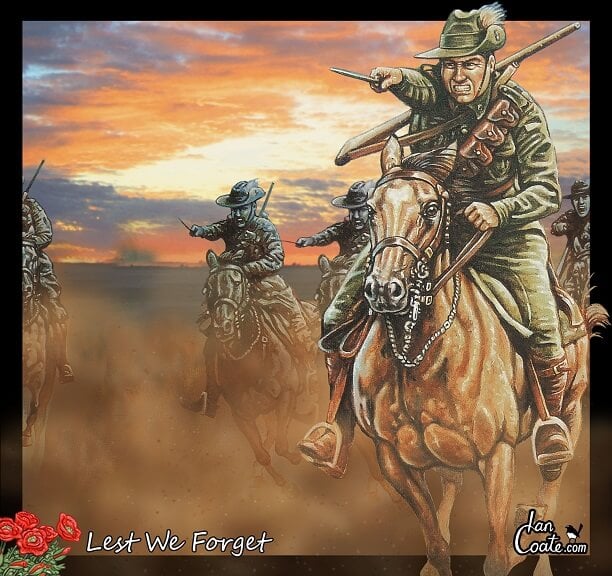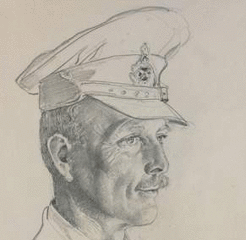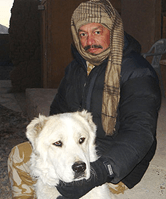
THE LIGHT HORSE'S GREAT CHARGE 99 YEARS ON
Image: 'Charge' by Ian Coate, www.iancoate.com. Reproduced with permission.
 Portrait by war artist George Lambert
Portrait by war artist George Lambert
depicting William Grant (1870-1939),
grazier and soldier.
Brigadier-General William Grant's leadership of the famous Light Horse charge at Beersheba secured the wells of Gaza and saved the British Army then pinned down in the deserts around the city. This action by the Australian Light Horse transformed the history of the world by shattering the centuries old Ottoman strategy of digging in on the edge of the Sinai Desert. The Turks could then drive any enemy coming across from Egypt into the deserts to die under combined assault of the elements and guerrilla attack.
Grant initially led the 11th Regiment of the Imperial Mounted Division during the desert campaigns in the Levant. He was noted for his command of this unit during the failed second battle of Gaza in April 1917. In August he was promoted to Brigadier-General and given command of the 3rd Light Horse Brigade, but soon transferred to the 4th Light Horse. In the third battle of Gaza it was Grant who personally commanded the Light Horse in galloping the Turkish defences to the east of Beersheba and securing the wells which were vital to any further advance.
Grant and his men's charge at Beersheba broke the Turkish bottleneck so successfully that in under a year the millennia long dominance of the Levant and Mesopotamia from neighboring highland regions, such as Eastern Anatolia and the Iranian Plateau, was brought to a sudden end. The Ottoman strategy at Gallipoli in 1915 was similar to that at Gaza in 1917, a war of attrition that would drive the enemy back into the abyss of sea or dessert. Only here the brave men of the Australian Light Horse were not on foot, unlike Gallipoli, they had their horses in the open country.
Grant's family say he was a horseman through and through and “could ride before he could walk”. He has passed on this legacy to many of his descendants who have been actively involved in pony clubs.




















